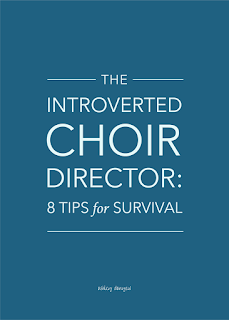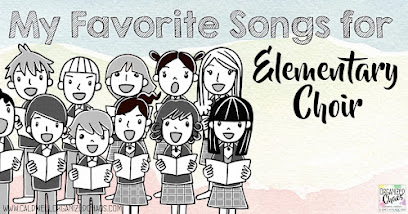Boy, June has certainly been a whirlwind. With 12 makeup days on our calendar our last day of school this year was the 26th, and it seemed like I was in charge of a million end-of-year events this year that kept me busy right up until the end. Now that I can breathe again, it's time to take a look back at some of the highlights from the past month!
1. First international music festival
This was perhaps the highlight of the entire school year, actually. After years of thinking about it, I finally pulled off my first "international music festival" this year. I ran it like an informance- each grade level shared one or two songs/ dances from a country they have been studying in music class. Every student in the school performed for each other! Some grades did dances, some sang, some played instruments, and everyone pulled it off so much better than I ever could have hoped (especially since we had some unexpected school closures right before due to a tornado)! I've been teaching my classes these units on music from a specific country for years now, but this was my first time having them perform what they learned outside of class. If you want to see the lessons I use for 9 different countries, you'll find them all in this blog post.
2. Teacher of the year
I'll be honest, I feel a little weird sharing this, but I have a reason (besides tooting my own horn) so stay with me. I was recognized as my building's teacher of the year this year, and I was so grateful for the encouragement I got from my colleagues who wrote such glowing reflections on my teaching as part of the nomination process. It was such a good reminder of something I've really been thinking about a lot more this past school year: the value and importance of positive affirmation for my friends and colleagues around me. We all nod our heads when we hear this but then in the craziness of life it so often gets lost in the shuffle anyway: all of us need encouragement and support, especially as teachers! Hearing genuine praise and getting recognition for the time and energy I pour into something I care so deeply about was so refreshing and uplifting. I was re-inspired to make a conscious effort to tell the adults around me- not just my students- about the positive things I see them doing and the positive character traits I admire in them. How much more motivated would we all be to go to work each day if we felt appreciated more often?
3. Start of summer
I can't talk about June without mentioning the start of summer vacation! Those of you who know me know that I won't stop working entirely, but a change of pace and scenery, and more time to spend with my daughters, is definitely a welcome change! I'm looking forward to the chance to reflect on everything that has happened over the past year, tackle some of those projects I've been putting off, and just enjoying a slower pace of life with my girls for the next several weeks.
4. Music education articles
I love finding great music teaching posts to share with you each month- click on the picture below to read each one. I promise they are worth your time!
1. First international music festival
This was perhaps the highlight of the entire school year, actually. After years of thinking about it, I finally pulled off my first "international music festival" this year. I ran it like an informance- each grade level shared one or two songs/ dances from a country they have been studying in music class. Every student in the school performed for each other! Some grades did dances, some sang, some played instruments, and everyone pulled it off so much better than I ever could have hoped (especially since we had some unexpected school closures right before due to a tornado)! I've been teaching my classes these units on music from a specific country for years now, but this was my first time having them perform what they learned outside of class. If you want to see the lessons I use for 9 different countries, you'll find them all in this blog post.
2. Teacher of the year
I'll be honest, I feel a little weird sharing this, but I have a reason (besides tooting my own horn) so stay with me. I was recognized as my building's teacher of the year this year, and I was so grateful for the encouragement I got from my colleagues who wrote such glowing reflections on my teaching as part of the nomination process. It was such a good reminder of something I've really been thinking about a lot more this past school year: the value and importance of positive affirmation for my friends and colleagues around me. We all nod our heads when we hear this but then in the craziness of life it so often gets lost in the shuffle anyway: all of us need encouragement and support, especially as teachers! Hearing genuine praise and getting recognition for the time and energy I pour into something I care so deeply about was so refreshing and uplifting. I was re-inspired to make a conscious effort to tell the adults around me- not just my students- about the positive things I see them doing and the positive character traits I admire in them. How much more motivated would we all be to go to work each day if we felt appreciated more often?
3. Start of summer
I can't talk about June without mentioning the start of summer vacation! Those of you who know me know that I won't stop working entirely, but a change of pace and scenery, and more time to spend with my daughters, is definitely a welcome change! I'm looking forward to the chance to reflect on everything that has happened over the past year, tackle some of those projects I've been putting off, and just enjoying a slower pace of life with my girls for the next several weeks.
4. Music education articles
I love finding great music teaching posts to share with you each month- click on the picture below to read each one. I promise they are worth your time!
Time for July- I'm ready! I hope you all get a chance to unplug and unwind this month, but don't forget to check in here too! I have some fun plans for this summer that you won't want to miss. Want to get a peek into my everyday life more often? I share more snapshots like this over on Instagram much more regularly. And if you aren't already, you'll definitely want to get yourself signed up for the Organized Chaos Newsletter right here! I always send out a few exclusive treats over the summer to subscribers!


















































